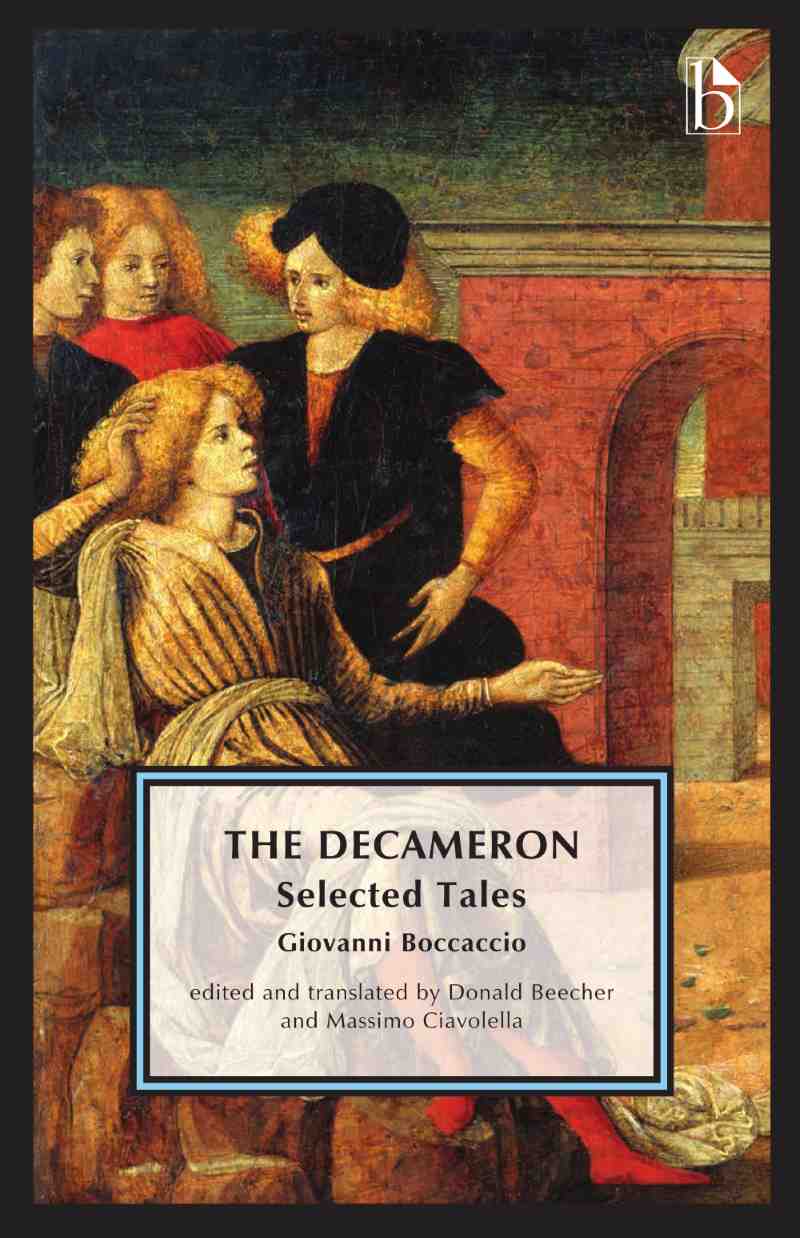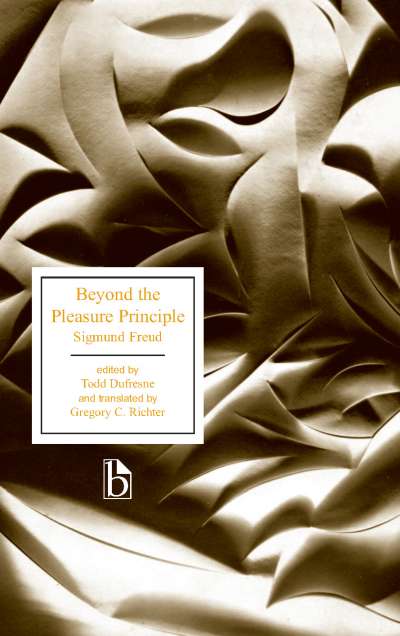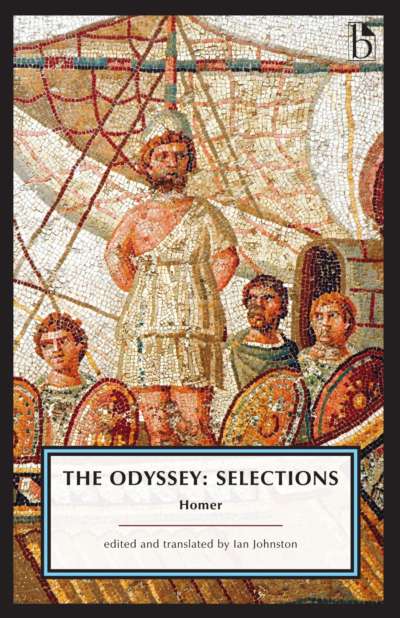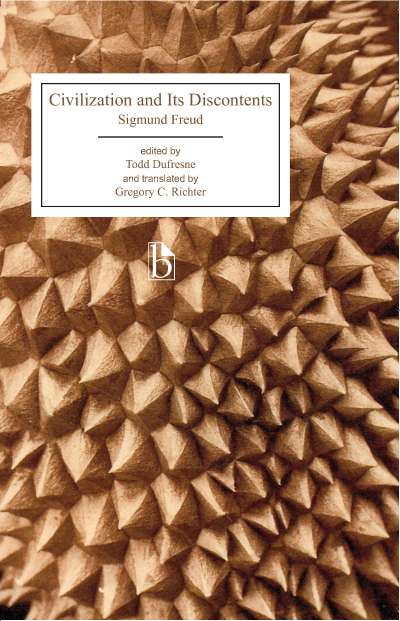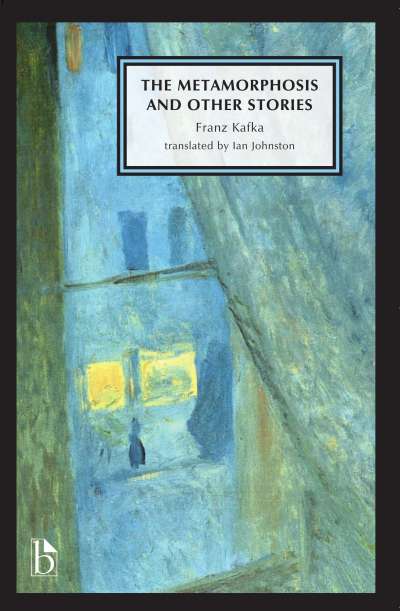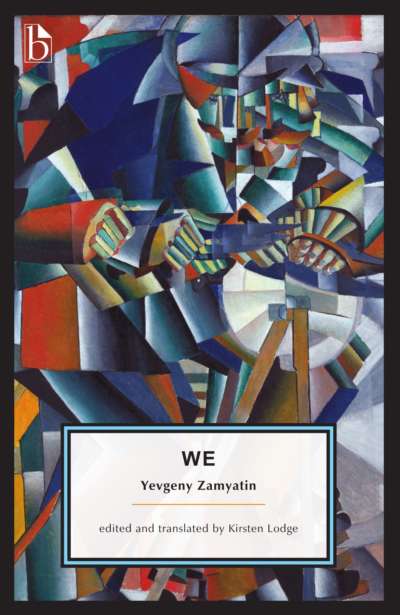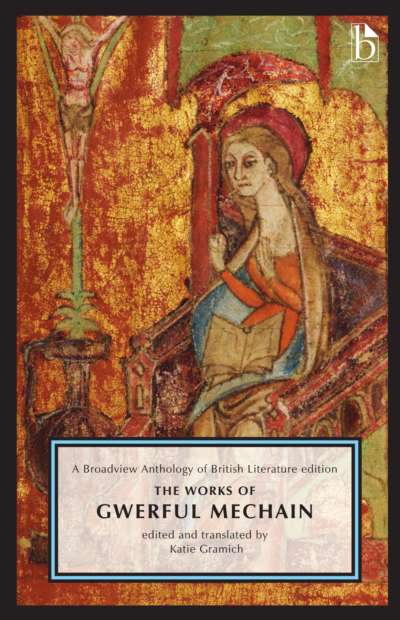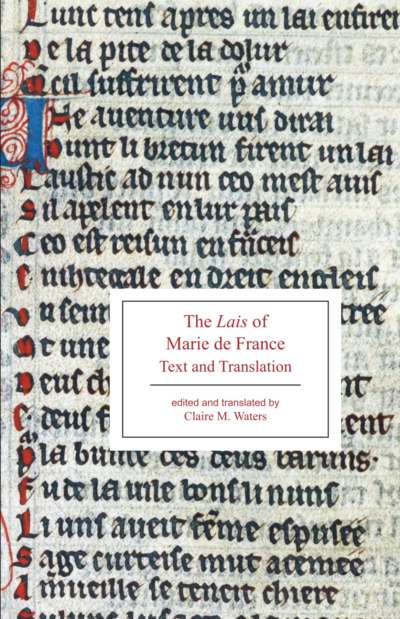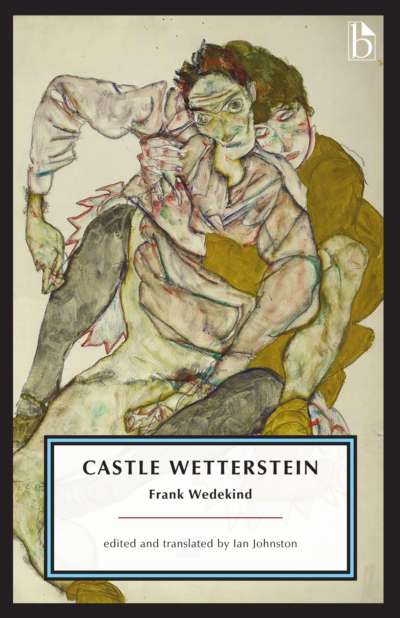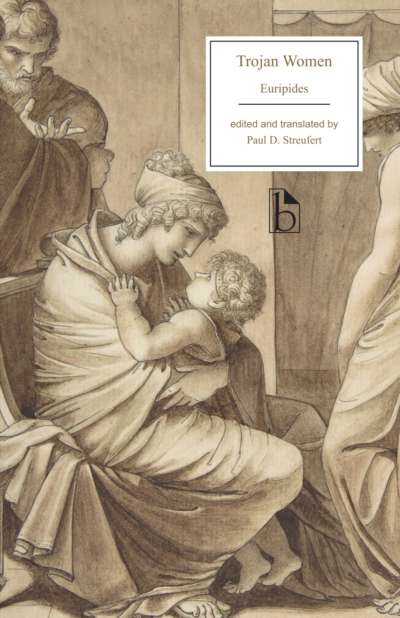This edition presents 33 of the 100 tales, with at least two from each of the ten days of storytelling. Boccaccio’s general introduction and conclusion to the work are also included, as are the introduction and conclusion to the first day; the reader is thus provided with a real sense of the Decameron’s framing narrative. Extensive explanatory notes are provided, and the volume is prefaced by a concise but wide-ranging introduction to Boccaccio’s life and times, as well as to the Decameron itself. A unique selection of contextual materials concludes the volume.
Comments
“Furnished with an engaging selection of tales, a formidable apparatus of primary texts and reproductions [from the] visual arts, this is an ideal text for a course in English on Boccaccio’s Decameron. The translators have struck an enviable balance between the colloquial valences of the dialogue and the more formal moments of its register, all while untangling the complex syntax that can be daunting to the non-specialist….This is a Decameron that is accessible and comprehensible, inviting the general reader into its rich narrative world.” — Kristina M. Olson, George Mason University
“Boccaccio… is unsurpassed in the illuminating perspective from which he explores the variety of dramas of his characters in their day to day interactions,… [and this] rendition of the Decameron is extraordinary: it breathes fresh life into this classic of world literature.” — Giuseppe Mazzotta, Sterling Professor in the Humanities for Italian, Yale University
“The translators have provided a smart and engaging selection of the best tales of the Decameron. Their lively prose translation successfully captures the oral scene of storytelling that is central to the book while still attending to important specifics of Boccaccio’s language. A carefully conceived collection of secondary readings completes this volume, which will allow readers to enjoy Boccaccio’s masterpiece from a variety of perspectives.” — Michael Sherberg, Washington University
Acknowledgments
Introduction
from The Decameron
- The Author’s Preface
Introduction to the First Day
The First Day [on open topics]
- I. Story 1: Cepparello’s False Confession
I. Story 2: The Jew who Sees Rome and Converts
I. Story 3: Melchisedech and the Tale of the Three Rings
I. Story 5: The King of France and the Banquet of Hens
I. Story 10: Master Alberto Shames the Woman who Refuses his Love
- Conclusion to the First Day
- The Second Day [about those who, after enduring many misfortunes, find happiness]
- II. Story 5: Andreuccio’s Three Misadventures in Naples
II. Story 7: The Sultan’s Daughter Sleeps with Nine Men and Returns a Virgin
- The Third Day [about those who, through clever thinking, achieve their goals or recover things lost]
- III. Story 1: Masetto becomes Gardener to a Convent
III. Story 6: Ricciardo sends a Jealous Wife to the Baths to catch her Husband
III. Story 8: Ferondo visits Purgatory
III. Story 9: Giletta of Narbonne
III. Story 10: Alibech and Rustico put the Devil back into Hell
- The Fourth Day [about lovers who come to misery]
- Introduction
IV. Story 1: Tancredi, Ghismunda, and her Lover’s Heart
IV. Story 2: Frate Alberto as the Angel Gabriel
IV. Story 5: Lisabetta and the Pot of Basil
IV. Story 8: The Broken Hearts of Girolamo and Salvestra
- The Fifth Day [about lovers who, after great trials and misfortunes, at last find happiness]
- V. Story 1: Cimone and Lisimaco Abduct their Brides
V. Story 4: The Lovers, the Balcony, and the Nightingale
- The Sixth Day [about those who, through a quick retort or witty quip, escape danger, loss, or shame]
- VI. Story 1: Madonna Oretta and the Story Ride
VI. Story 4: Chichibio and the One-legged Bird
VI. Story 7: Donna Filippa Confronts the Adultery Laws
VI. Story 9: Guido Cavalcanti’s Witty Escape
- The Seventh Day [about the tricks women play on their husbands whether for love or self-protection and escape]
- VII. Story 2: Peronella’s Lover and the Barrel
VII. Story 6: A Quick-Thinking Adulteress
- The Eighth Day [about tricks that women play on men, men play on women, or men play on other men]
- VIII. Story 3: Calendrino and the Heliotrope Stone
VIII. Story 7: The Scholar Frozen and the Lady Burned
- The Ninth Day [on open topics]
- IX. Story 5: Calandrino in Love
IX. Story 6: Three Beds and a Cradle
IX. Story 10: The Spell that Turns Women to Mares
- The Tenth Day [about those who have acted with generosity or magnanimity in any capacity]
- X. Story 3: Nathan Offers his Life
X. Story 5: A Lady’s Honour for a Garden in Winter
X. Story 8: The Perfect Friendship of Tito and Gisippus
X. Story 10: Griselda’s Remarkable Patience
- The Author’s Epilogue
In Context
The Black Death
- Images of the Black Death
from Marchione di Coppo Stefani, The Florentine Chronicle (ca. 1389), “Concerning the Black Death in the City of Florence, Mortal to Many People,”
Accounts of Boccaccio’s Life
- Giannozzo Manetti, “The Life of Giovanni Boccaccio” (1440)
Ludovico Dolce, “A Description of the Life of Messer Giovanni Boccaccio” (1552)
Sources and Antecedents
- from Apuleius, The Golden Ass (c. 160 CE), from Book Nine: “The Lover in the Barrel” (c. 160 CE)
from Petrus Alphonsus, Disciplina Clericalis, “The Two Perfect Friends,” (12th century)
from Andreas Capellanus, The Art of Courtly Love (c. 1180)
from Book 1
Chapter 1. What Love Is
Chapter 3. Where Love Gets Its Name
from Chapter 4. What the Effect of Love Is
from Chapter 8. The Love of Nuns
from Chapter 9. Love Got with Money
Chapter 11. The Love of Peasants
from Book 2
from Chapter 8. The Rules of Love
Anonymous, “Concerning a Priest and a Lady” (13th century)
from Anonymous, Il novellino (1281-1300)
- XIV. How a king raised his son in darkness, then revealed to him all there was in the world, and how the boy found women above all things the most pleasing.
LXXIII. How the Sultan in search of money tried to snare a Jew through litigation.
LXXXVIII. The Never-ending Story.
from Giovanni Boccaccio, The Questions of Love: “The Fourth Question, as proposed by Menedon” (1335-36)
The Tale of Patient Griselda
- from Francesco Petrarch, Letter to Boccaccio on “The Tale of Patient Griselda” (1373)
Anonymous, “A Most Pleasant Ballad of Patient Grissell” (c. 1600)
Patterns of Influence
- from Sir Thomas Elyot, The Book Named the Governour: from Bk. II, Chap. 12, “The Wonderful History of Titus and Gisippus, whereby is fully declared the figure of perfect amity.” (1531)
from Giovan Francesco Straparola, The Pleasant Nights (Piacevoli notti) (1550, 1553)
- from the Proem
Rodolino and Violante, or The Broken Hearts
Early Illustrations
Donald Beecher, Professor of English at Carleton University, is the editor and/or translator of more than twenty editions and anthologies, including a two volume edition of Giovan Francesco Straparola’s The Pleasant Nights (University of Toronto Press, 2014); Massimo Ciavolella holds the positions of Franklin D. Murphy Chair in Italian Renaissance Studies and Director of the Center for Medieval and Renaissance Studies at the University of California, Los Angeles; he is author or editor of more than a dozen books and many articles on medieval and Renaissance Italian literature.
For Beecher and Ciavolella’s translation of Story Two from The Seventh Day, click here. (Opens as a PDF.)

